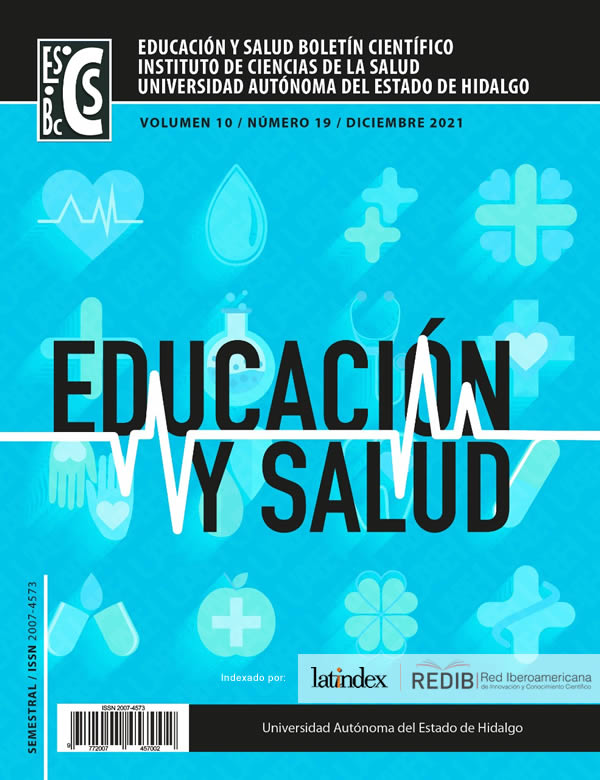Theoretical bases, application, operationalization and measurement of variables in psychology
Abstract
Variables are central elements in scientific activity, including psychology, however, it can be complex to identify their function and application. The present work aims to provide an overview of the variables from research in the psychological field, delves into the definition of concept, construct and variable; in addition to explaining and exemplifying five classifications of the variables; I) by the number of its securities; II) by its nature; III) by the level of measurement; IV) by the degree of manipulation; V) by its definition; Likewise, it allows us to deepen the importance of the conceptual and operational definition, favoring the understanding of the congruence between the theoretical and empirical level of the variables. Finally, it is concluded that the clarity that a study manifests in its variables is a key point for its planning, execution and communication of results.
Downloads
References
Kerlinger F, Lee H. Investigación del comportamiento. México: McGraw-Hill; 2002.
Real Academia Española de la Lengua. Diccionario de la lengua española. 23ª ed. España: Autor; 2014.
Moulines C. Fundamentos de Filosofía de la Ciencia. Barcelona: Alianza Editorial;1997.
American Psychiatric Association. DSM-5: Manual diagnóstico y estadístico de trastornos mentales. 5ª ed. Madrid: Editorial Médica Panamericana; 2014.
García B. Manual de métodos de investigación para las ciencias sociales. Un enfoque de enseñanza basado en proyectos. México: Manual Moderno; 2009.
Ritchey F. Estadística para las Ciencias Sociales. México: Mc Graw Hill; 2008.
Cruz C, Olivares S, González M. Metodología de la investigación. México: Grupo Editorial Patria; 2010.
Nuñez I. Las variables: estructura y función en la hipótesis. Inves Educ. 2007[acceso: 08/05-21]; 11(20):163-179. Disponible en: http://revistasinvestigacion.unmsm.edu.pe/index.php/educa/article/viewFile/4785/3857
García B, Márquez L, Ávila J. Planeación y desarrollo del proyecto de investigación. En: García B. editor. Manual de métodos de investigación para las ciencias sociales. Un enfoque de enseñanza basado en proyectos. México: Manual Moderno; 2009. p. 3-47
González-Celis ALM. Las variables en Psicología: su clasificación, definición y medición. En Chávez B., Tron R. Coordinadores. Análisis descriptivo en Psicología. Aspectos metodológicos y estadísticos. México: UNAM, FESI; 2012. p. 19-67.
Cohen R, Swerdlik M. Pruebas psicológicas: introducción a las pruebas y la medición. México: McGraw-Hill; 2006.
Torgerson W. Theory and methods of scaling. Melbourne: Krieger; 1985.
Villar F, López O, Celdrán M. La generatividad en la vejez y su relación con el bienestar: ¿Quién más contribuye es quien más se beneficia? Anales Psic. 2013[acceso 13/05/21]; 29(3): 897-906. Disponible en: https://scielo.isciii.es/scielo.php?script=sci_arttext&pid=S0212-97282013000300029
Harper A, Power M. Development of the World Health Organization WHOQOL-Bref quality of life assessment. Psych Medic. 1998[acceso: 12/05/21]; 28: 551-558. Disponible en: https://pubmed.ncbi.nlm.nih.gov/9626712/
Cozby P. Métodos de investigación del comportamiento. 8ª ed. California: Cal State Univer; 2005.
Coon D, Miterer J. Introducción a la psicología: el acceso a la mente y la conducta. México: Cengage; 2017.
Sternberg R. Triangular theory of love. Psych Rev. 1986[acceso: 13/05/2021]; 93(2); 119-135. Disponible en: https://www.semanticscholar.org/paper/A-triangular-theory-of-love.-Sternberg/3ece4ab9b51b22105e654e2c587d2c4fbd19f59d
Mazadiego T, Garcés J. El amor medido por la Escala Triangular de Sternberg. Psicolatina. 2011[acceso: 13/05/21];22(1): 1-10. Disponible en: http://psicolatina.org/22/seccion1/amor.pdf
Marván M, Orihuela-Cortés F, Río AÁD. Actitudes hacia la interrupción voluntaria del embarazo en jóvenes mexicanos, y su opinión acerca del aborto inseguro como problema de salud pública. Cad Saú Púb. 2018[acceso 08/05/21]; 30(10); 1-8. Disponible en: https://doi.org/10.1590/0102-311X00192717
González-Forteza C, Andrade P, Jiménez T. Recursos psicológicos con el estrés cotidiano en una muestra de adolescentes mexicanos. Salud Ment. 1997[acceso: 13/05/21]; 20(1): 27-35. Dsiponible en: http://www.revistasaludmental.mx/index.php/salud_mental/article/view/639
Vázquez R., Galán JC, López X, Alvarez G, Mancilla J M, Caballero A, Unikel C. Validez del Body Shape Questionnaire (BSQ) en mujeres mexicanas. Rev Mex Tras Alimen. 2011(acceso 12/05(21]; 2(1): 42-52. http://www.scielo.org.mx/scielo.php?script=sci_arttext&pid=S2007-15232011000100005
Zarit S, Zarit J. The Memory and behavior Problem Checklist and the Burden Interview. Technical Report. Pensilvania; Pennsilvania State University; 1983.











